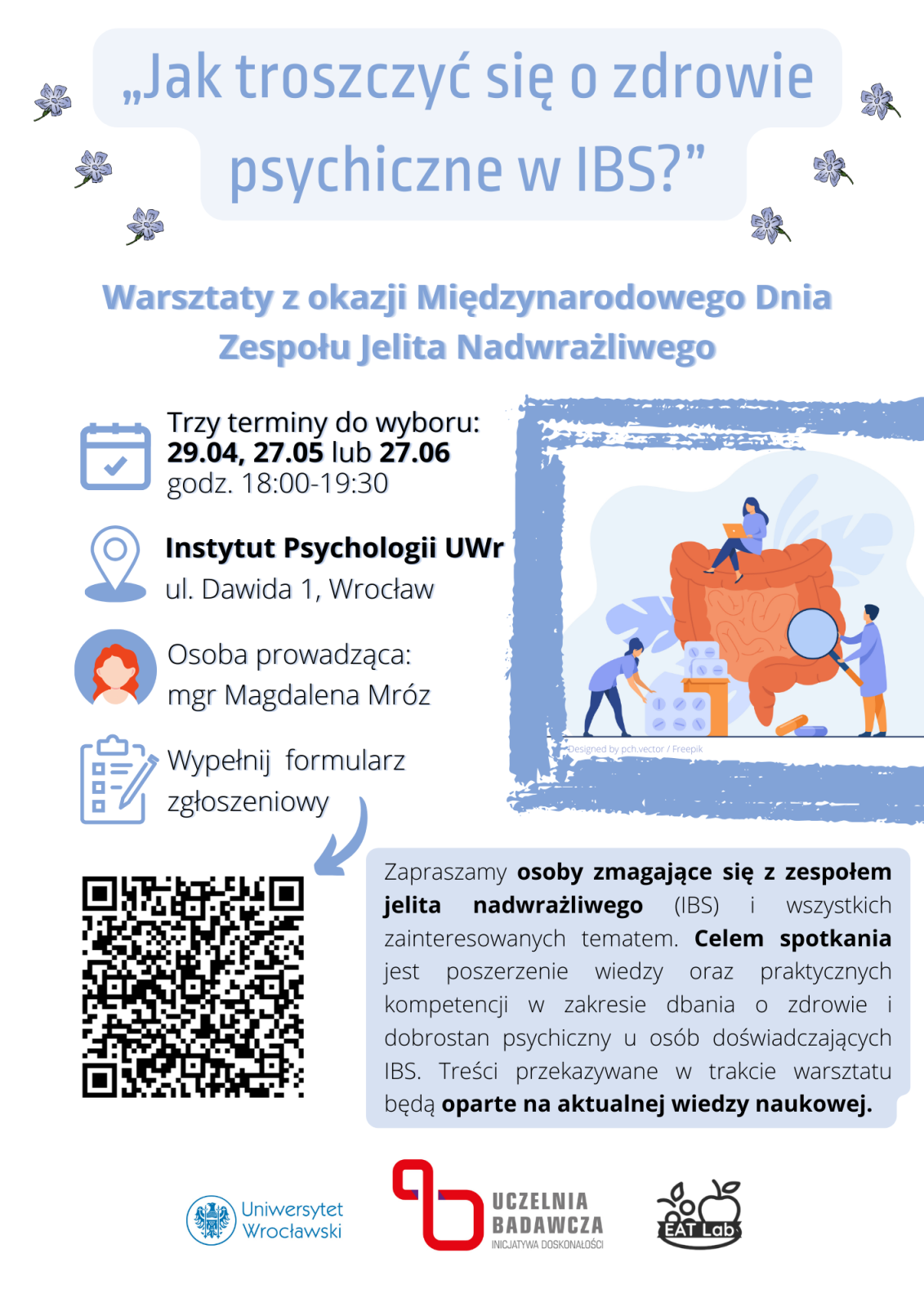
International Irritable Bowel Syndrome Day
Irritable Bowel Syndrome (IBS) Awareness Month falls in April each year. The first campaign was launched in the United States in 1997 by the IFFGD (the International Foundation for Gastrointestinal Disorders) to promote awareness of the diagnosis, treatment and support for people struggling with IBS. Internationally, this year’s campaign aims to raise awareness about the challenges and problems faced by individuals living with IBS. Which, as IFFGD specialists point out, is often linked to an incorrect perception and understanding of the functional gut disorder.
Irritable Bowel Syndrome (IBS) affects approximately 41-92% of people worldwide — and is one of the most common gastrointestinal disorders. It is characterised by problems with, among other things, motility (movement of digested food through the intestines) and irritable bowel. The primary symptoms of IBS include recurrent attacks of abdominal pain associated with changes in bowel movements, such as constipation or diarrhoea. Although IBS is not life-threatening, experiencing bowel symptoms is disruptive, embarrassing and exhausting; it can contribute to a reduced sense of well-being and have adverse effects on mental health.
In recognition of International Irritable Bowel Syndrome Day, which falls on April 19, the Institute of Psychology is hosting a workshop titled “Jak troszczyć się o zdrowie psychiczne w IBS?” (Mental Health Care for IBS).
The workshop is the result of several years of research into the experiences of people with irritable bowel syndrome conducted at the EAT Lab. Women who experience irritable bowel syndrome (IBS) are welcome to participate in the study that is currently conducted. More information is available on the project’s website (here).
The topic of the workshop
This meeting is open to anyone interested in learning more about irritable bowel syndrome (IBS), particularly individuals who are currently struggling with this disorder and their relatives. The event aims to increase the participants’ knowledge and practical competence in caring for the health and psychological well-being of people experiencing IBS.
The theoretical part will discuss the causes and mechanisms of IBS symptoms, including the importance of the brain-gut-microbiota axis. The presentation will discuss the mental health risks associated with IBS and the psychological challenges often faced by those who experience it. As the psychological state has a bidirectional effect on IBS symptoms (on the one hand, severe stress exacerbates symptoms, and on the other hand, experiencing IBS symptoms is a source of stress and anxiety) — the main focus of the workshop will be on the psychological aspect of experiencing IBS.
The practical part will consist of individual work prompting self-reflection on their lifestyles (dietary behaviour, ways of coping with stress, physical activity, sleep quality) and their impact on the severity of IBS symptoms. During the workshop, participants will learn daily stress management techniques to self-manage IBS symptoms. The content conveyed during the workshop is based on current scientific knowledge.
Participation in the workshop is free of charge — registration via form is required (https://forms.office.com/e/StNj44iwAF) The number of places is limited; therefore, the order of the applications is decisive.
Duration: 90 min (one-time meeting)
Dates:
April 29, 2024, 6:00 pm – 7:30 pm
May 27, 2024, 6:00 pm – 7:30 pm
June 27, 2024, 6:00 pm – 7:30 pm
Place: Instytut Psychologii UWr, ul. Dawida 1, Wrocław
Person in charge of the workshop:
Mgr Magdalena Mróz is a psychologist and a doctoral student at the Institute of Psychology, University of Wrocław. As a master’s student, she developed a keen interest in psychosomatics — the relationship between mental state and physical health (how one can affect the other). Since then, she has spent several years studying the area related to the functioning of the gut-brain axis, which is also important in medicine and dietetics. Gaining knowledge and conducting research — in this interdisciplinary area — helps her to view humans holistically, including their needs, experiences, and overall well-being.
Translated by Amelia Ćwikła (student of English Studies at the University of Wrocław) as part of the translation practice.
1 Sperber, A. D., Bangdiwala, S. I., Drossman, D. A., Ghoshal, U. C., Simren, M., Tack, J., Whitehead, W. E., Dumitrascu, D. L., Fang, X., Fukudo, S., Kellow, J., Okeke, E., Quigley, E. M. M., Schmulson, M., Whorwell, P., Archampong, T., Adibi, P., Andresen, V., Benninga, M. A., … Palsson, O. S. (2021). Worldwide Prevalence and Burden of Functional Gastrointestinal Disorders, Results of Rome Foundation Global Study. Gastroenterology, 160(1), 99-114.e3. https://doi.org/10.1053/J.GASTRO.2020.04.014
2 Oka, P., Parr, H., Barberio, B., Black, C. J., Savarino, E. V., & Ford, A. C. (2020). Global prevalence of irritable bowel syndrome according to Rome III or IV criteria: a systematic review and meta-analysis. The lancet. Gastroenterology & hepatology, 5(10), 908–917. https://doi.org/10.1016/S2468-1253(20)30217-X
3 Drossman, D. A. (2016). Functional gastrointestinal disorders: History, pathophysiology, clinical features, and Rome IV. Gastroenterology, 150(6), 1262-1279.e2. https://doi.org/10.1053/j.gastro.2016.02.032
4 Trindade, I. A., Melchior, C., Törnblom, H., & Simrén, M. (2022). Quality of life in irritable bowel syndrome: Exploring mediating factors through structural equation modelling. Journal of psychosomatic research, 159. https://doi.org/10.1016/J.JPSYCHORES.2022.110809
5 Zamani, M., Alizadeh-Tabari, S., & Zamani, V. (2019). Systematic review with meta-analysis: the prevalence of anxiety and depression in patients with irritable bowel syndrome. Alimentary pharmacology & therapeutics, 50(2), 132–143. https://doi.org/10.1111/apt.15325




